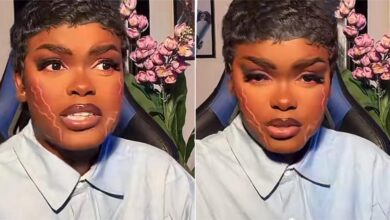Man pens open letter to Peter Obi, vows to dump him if he joins Atiku or any alliance

A Nigerian man has written an open letter to Labour Party’s 2023 presidential candidate, Peter Obi, vowing to withdraw his support if Obi joins a coalition with Atiku Abubakar or any alliance that doesn’t present him as the presidential flag bearer in the 2027 election.
The letter was posted by @PureMinD__ on the social media platform X (formerly Twitter), where he outlined his reasons and recounted his efforts in support of Obi’s 2023 campaign.
He stated: “I am writing to inform you ahead of my decision to withdraw my support if you ever join a coalition with Atiku Abubakar as Vice President or any coalition that will not see you as the presidential candidate.”
He went on to list six key things he personally did for Obi during the 2023 election:
1. Sponsored buses to mobilize youths for rallies.
2. Printed campaign materials and funded food and drinks at events.
3. Spent hundreds of thousands to pacify those planning to disrupt the election.
4. Protected a Labour Party agent from violent attacks.
5. Promoted Obi on his platforms, rejecting lucrative offers from rival parties.
6. Endured threats as a Yoruba man publicly supporting Obi in a pro-APC environment.
He expressed disappointment at the idea of Obi possibly accepting a VP role, especially alongside Atiku, questioning how someone who has been actively engaging citizens could end up playing second fiddle to someone “chilling in the UAE since 2023.”
The letter emphasized Obi’s unique position as a relatable and competent leader who embodies the hopes of young Nigerians, warning that any deviation from that path could cost him the loyalty of millions of supporters.
“As 2027 approaches, more young voters who couldn’t vote in 2023 will be eligible. If you run, we’ll be there. But if you choose to step down for someone else, you’ve lost me and millions of others,” he concluded.
As the post went viral, concerned Nigerians flooded the comment section to share their opinions.
See some reactions below:
@oppressed_iam: “We are more than 30 Millions behind u my brother from another mother, thanks, coalition is nice but coalition without Peter Obi as a figure head is dead on arrival, what we want now is coalition of Nigerians against hunger and Electoral reform were if u rig u die.”
@DonNwankwo1: “Who cares about? Just listen to all the replies, they are Yoruba ronus. Go to hell with your support.”
@kingBuchyk: “I ageee with you but we shouldn’t play politics with emotions in other to beat Tinubu you have to go harder bro.”
@bankeyys: “This is purely me during the elections. I ensure to see who my parents voted for before I continuing sending any gig. And am already preparing for 2027 in fact financially to support him.”
@AdekunleOderind: “Well written brother, any coalition with the forces of criminality is zero and we won’t support such movement.”
@ChumaOrji3: “Bros! I did more than these before the 2023 Elections. Ever since then I have been seriously victimized. However, I am more interested in any strategy to ensure this bad governance ends. So it can be Obi or Atiku or Elrufai. But the key point is ending bad governance not emotions.”
SEE POST:





